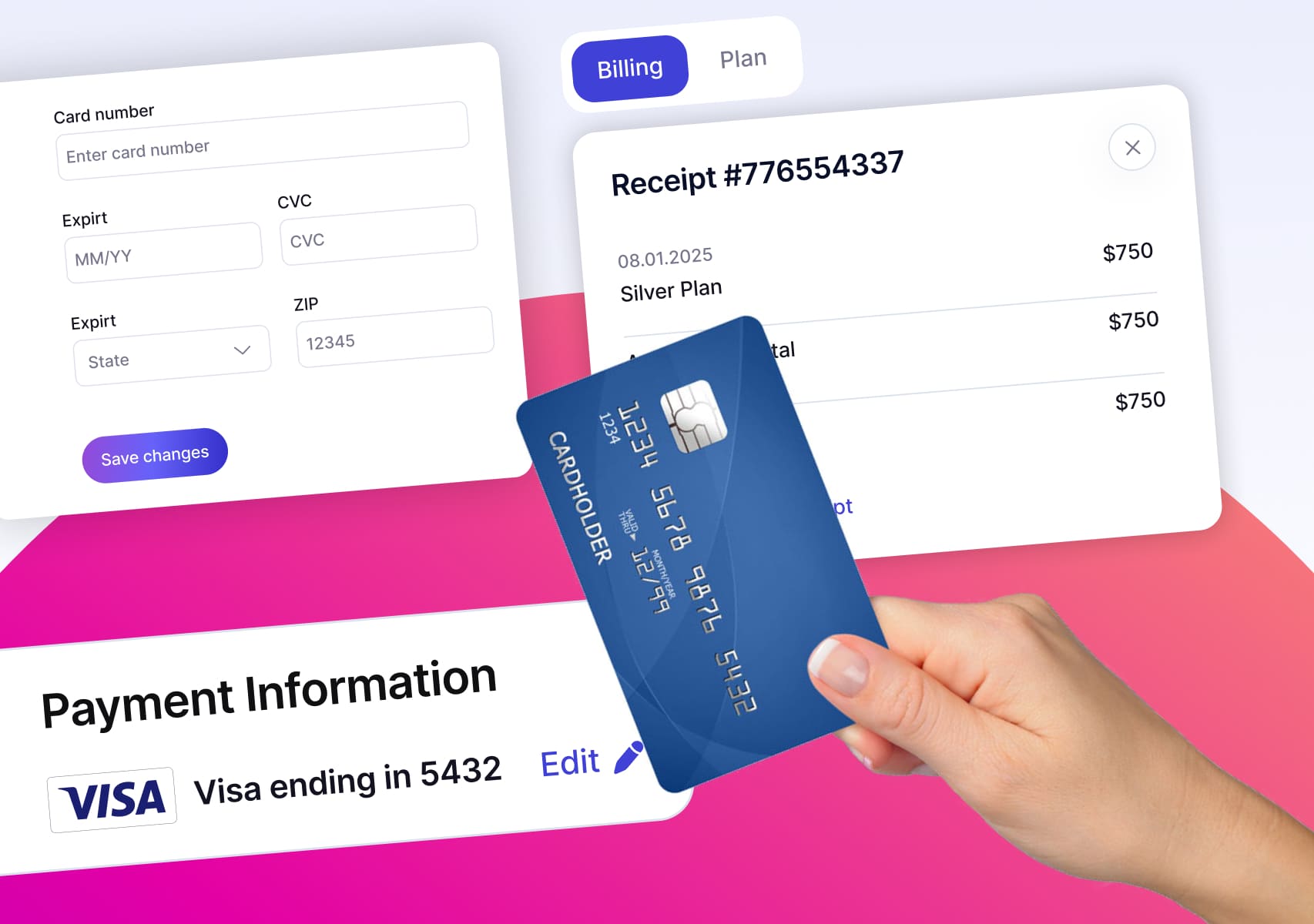Best Legal Billing Software for Streamlining Invoicing & Practice Management

Managing a legal practice involves juggling multiple tasks, from client management to time tracking and billing. Having efficient tools can make all the difference, and this is where legal billing software steps in. In this comprehensive article, we’ll dive into the top solutions for legal billing and practice management, exploring their features, benefits, and why they are indispensable for modern law firms.
What is Legal Billing Software?
Legal billing software is a specialized tool designed to manage the financial aspects of running a law practice. It helps lawyers and law firms streamline tasks like invoicing, expense tracking, time tracking, and payment processing. Unlike generic billing tools, legal billing software includes features tailored specifically for the legal profession, such as compliance with legal billing codes and trust accounting requirements.
Key features of legal billing software include:
- Time Tracking: Automatically record billable hours accurately.
- Invoicing: Generate detailed invoices customized for legal work.
- Trust Accounting: Manage client funds securely and in compliance with legal regulations.
- Reporting: Gain insights into financial performance and client billing patterns.
By investing in the right legal billing software, law firms can increase efficiency, minimize billing errors, and improve client satisfaction.
Billing Software for Lawyers
Billing software for lawyers is tailored to address the unique challenges legal professionals face in managing their practices. Lawyers often work on multiple cases simultaneously, requiring tools that can handle complex billing structures like hourly rates, flat fees, and contingency billing.
Here’s why billing software for lawyers is a game-changer:
- Accuracy: Automatically track billable time to ensure no revenue is lost.
- Efficiency: Reduce administrative overhead with streamlined workflows.
- Compliance: Meet industry standards and legal requirements effortlessly.
Popular features in billing software for lawyers include document automation, case management integration, and client communication portals. By choosing the right solution, lawyers can focus more on their cases and less on administrative tasks.
Lawyer Billing Software
Lawyer billing software simplifies the way attorneys manage their financial processes. Whether working in a large firm or as a solo practitioner, this software helps lawyers save time and ensure accuracy in their billing practices.
Benefits of lawyer billing software:
- Time Tracking Integration: Capture billable hours directly from your calendar or email.
- Expense Management: Track case-related expenses and add them to client invoices seamlessly.
- Payment Processing: Accept credit cards, ACH transfers, and online payments to reduce delays.
Top lawyer billing software options also offer mobile apps, allowing attorneys to manage billing on the go. These tools are not just about invoicing; they are a holistic solution to streamline legal practice management.
Best Legal Billing Software for Small Firms
Small law firms often face the dual challenge of limited resources and the need to provide top-tier services. Choosing the best legal billing software for small firms can bridge this gap by automating billing processes and improving operational efficiency.
Features to look for in the best legal billing software for small firms:
- Cost-Effectiveness: Affordable plans tailored for small practices.
- User-Friendly Interface: Simplified navigation to reduce learning curves.
- Scalability: Tools that grow with your firm as your client base expands.
The best legal billing software combines functionality with affordability, empowering small firms to compete with larger practices. Popular options in this category include Clio, PracticePanther, and Bill4Time, each offering unique features to meet the needs of small law firms.
Legal Invoicing Software
Legal invoicing software is a specialized tool that focuses on creating professional, accurate, and detailed invoices tailored for legal practices. Unlike standard invoicing tools, legal invoicing software takes into account factors like billable hours, expense tracking, and compliance with legal billing guidelines.
Key advantages of legal invoicing software:
- Customization: Personalize invoices with your firm’s branding and payment terms.
- Automation: Set up recurring invoices and payment reminders.
- Transparency: Provide clients with clear, detailed breakdowns of services rendered.
Adopting legal invoicing software ensures that your firm’s billing process is not only efficient but also professional, fostering better relationships with your clients.
Finding the Right Solution for Your Firm
Choosing the right legal billing software depends on your firm’s unique needs. Factors to consider include:
- Practice Size: Solo practitioners may need simpler tools, while larger firms require robust, feature-rich platforms.
- Budget: Look for cost-effective solutions that offer maximum value.
- Integration: Ensure the software integrates seamlessly with other tools you use, such as case management or accounting software.
Testing multiple options through free trials can help you identify the perfect fit for your practice.
How to Evaluate Legal Billing Software Options
Selecting the right legal billing software is a significant decision for any law firm. With so many options available, it’s essential to evaluate each one based on specific criteria to ensure it aligns with your practice’s needs and goals. Here’s a closer look at how to assess your options:
Ease of Use
One of the most critical factors in choosing legal billing software is its user-friendliness. Your team should be able to navigate the software with minimal training, ensuring that time is spent on cases rather than learning a new tool. Look for intuitive interfaces and straightforward workflows that reduce complexity.
Features and Functionality
Determine the specific features your firm requires. While basic billing and invoicing tools might suffice for some, others may need advanced features like:
- Trust Accounting: Essential for managing client funds in compliance with legal standards.
- Mobile Access: Enables on-the-go billing and time tracking.
- Client Portals: Offers clients a secure way to view invoices, make payments, and track case updates.
- Integrations: Look for software that integrates seamlessly with tools you already use, such as QuickBooks, Dropbox, or Microsoft Office.
Scalability
As your firm grows, your software should grow with you. Evaluate whether the platform can handle an increased client base, more complex cases, or additional team members. A scalable solution will save you the cost and hassle of switching platforms down the road.
Pricing Models
Understanding the pricing structure is essential. Most legal billing software options are subscription-based, charging either per user or per month. Compare pricing plans to find the one that offers the best value for the features you need. Many vendors provide tiered pricing, so consider starting with a basic plan and upgrading as your needs evolve.
Customer Support and Training
Reliable customer support is vital when adopting new software. Look for companies that offer extensive onboarding resources, video tutorials, and responsive customer service teams. Some providers even offer dedicated account managers to help with implementation and ongoing usage.
Compliance and Security
Legal billing software must adhere to legal and ethical standards, such as trust accounting rules and data protection regulations. Ensure the platform you choose complies with relevant industry guidelines and employs robust security measures like encryption and two-factor authentication to protect sensitive client data.
Advantages of Cloud-Based Legal Billing Software
With the rise of cloud technology, many law firms are transitioning to cloud-based legal billing software. This shift offers numerous advantages over traditional, on-premise systems:
Accessibility
Cloud-based systems allow you to access your billing tools from anywhere, at any time. Whether you’re working from the office, home, or court, you can manage time tracking, invoicing, and payments with ease.
Cost-Effectiveness
Cloud solutions often have lower upfront costs since they don’t require expensive hardware or IT maintenance. Subscription pricing models make them more affordable, particularly for small firms.
Automatic Updates
Software providers regularly update cloud-based systems to enhance features, fix bugs, and ensure compliance with changing regulations. This eliminates the need for manual updates and ensures you’re always using the most current version.
Collaboration and Integration
Cloud-based platforms often integrate with other online tools, such as email, case management systems, and financial software. They also enable teams to collaborate seamlessly, regardless of location.
By leveraging cloud-based legal billing software, firms can enjoy greater flexibility, reduced costs, and improved efficiency.
Why Every Law Firm Needs Legal Billing Software
In today’s competitive legal landscape, staying ahead requires the right tools. Legal billing software is no longer a luxury—it’s a necessity for firms of all sizes. Here are some reasons every law firm should adopt this technology:
Enhanced Productivity
Manual billing processes are time-consuming and prone to errors. Legal billing software automates these tasks, freeing up valuable time for your team to focus on client work and case preparation.
Improved Client Relations
Transparent, detailed invoices foster trust and reduce disputes. Many legal billing software platforms include client portals where clients can view their billing history and make payments easily, enhancing the overall client experience.
Greater Financial Control
With built-in reporting tools, legal billing software provides insights into your firm’s financial health. You can track revenue, identify profitable cases, and make data-driven decisions to grow your practice.
Regulatory Compliance
Complying with legal billing codes and trust accounting rules is a must for any law firm. Legal billing software ensures that your billing practices meet industry standards, minimizing the risk of penalties or legal complications.
Why Contact OwchBuddy for Legal Billing Solutions
Finding and implementing the best legal billing software doesn’t have to be a daunting task. OwchBuddy specializes in helping legal professionals identify the tools that align with their needs.
With OwchBuddy, you gain access to expert insights, personalized recommendations, and ongoing support to ensure your firm thrives. Contact OwchBuddy today to discover the perfect legal billing software for your practice and start streamlining your operations!
Thank you for your comment
It will be published after moderation

 OwchBuddy
OwchBuddy







Comments 0